
Facilitated-Solutions-Experience-Qualifications-Approach_January-2025
ONGOING AND RECENT PROJECTS
Florida Building Commission. Department of Business and Professional Regulation. December 1998 – Current. Jeff Blair serves as consultant to the Florida Building Commission, a Governor appointed 19* member building construction industry stakeholder body—convened to develop, implement, and update the statewide Florida Building Code—that to date has delivered consensus agreements for the first Statewide Florida Building Code, eight triennial code updates, and related programs including the education and the product approval systems. Ongoing responsibilities include planning and process design, stakeholder participation, planning initiatives including workplan prioritization, and effectiveness assessment surveys, agenda design, meeting summary reports, facilitation, and consultation on process to the Commission Chair and the Department of Business and Professional Regulation (previously to the Department of Community Affairs) project staff. In addition to facilitating Commission meetings (over 220), responsibilities include facilitating the Commission’s technical advisory and program oversight committees (over 800), and since 1999 the facilitation of 70 special issue stakeholder workgroup projects involving over 260 meetings. The Commission process has been recognized nationally for its fundamental commitment to building consensus with building construction stakeholder interests on the development, implementation, and maintenance of the Florida Building Code. System Meeting evaluations, and effectiveness assessment survey results conducted by the Commission indicate that facilitation has been instrumental is assisting the Commission to successfully develop consensus policy and code development decisions since inception. In addition, the meeting facilitation services provided to date have contributed to a Florida Building Code that has been consistently recognized as one of the best in the nation. In fact, in their triennial assessment started in 2012 the Insurance Institute for Business and Home Safety (IBHS) ranked the Florida Building Code as number one in their 2012, 2018, and 2021 assessments of residential building code enforcement systems for life safety and property protection in hurricane prone regions. Effective July 1, 2019 the contract for the project moved from Florida State University to Facilitated Solutions, LLC, with Jeff Blair continuing to serve as the project’s service provider. * The Florida Building Commission has consisted of as many as 27 members.
RECENTLY COMPLETED PROJECTS
Oyster Coalition Workgroup (OCW). Oyster Recovery Partnership (ORP). July 2023 – December 2024. Worked with the Oyster Coalition Workgroup to develop consensus between and among stakeholders on a Long-Term Oyster Restoration and Management Strategic Plan for Eastern Bay, Maryland (Chesapeake Bay). The process was designed to build consensus between key stakeholder interests on a plan for sustainable oyster reef habitat restoration, wild oyster harvesting, and aquaculture for Eastern Bay, Maryland. This approach sought to create greater economic stability for the oyster fishery, and other commercial and recreational fishing industries dependent on healthy, productive, resilient and abundant reefs, while conserving ecosystems services provided by oyster reefs. Jeff Blair of Facilitated Solutions, LLC served as process designer and consultant and lead facilitator for the Oyster Coalition Workgroup in the role of an independent third-party neutral facilitator funded by the National Fish and Wildlife Foundation (NFWF). The OCW consisted of 17 members representing the full range of stakeholder interests in the Eastern Bay System. During the course of the project, running from July 2023 – December 2024, there were a total of six two-day (four-hours per day) OCW meetings, and one Community Open House Forum.
The project concluded on 5 December 2024 with the unanimous consensus adoption of Recommendations for the Sustainable Oyster Restoration and Management Plan for Eastern Bay, Maryland Plan (Plan). The recommendations were delivered by the ORP to natural resource managers and environmental regulators, and other appropriate agencies, entities, and organizations. Evaluation results from OCW meetings, comments by workgroup members during the final meeting, and debriefing with the ORP Project Team indicated a high level of satisfaction with the process design and implementation, facilitation, and project outcomes. Workgroup members indicated a desire to replicate the process in other river system watersheds in the Eastern Bay region. Adopted Unanimously 5 December 2024.
NSF Convergence Accelerator Project – The SequestStar Research Team is Creating A New Biomanufacturing Process for Making Precipitated Calcium Carbonate and Plant-Based Compounds that Support Human Health. UMCES-NSF. Phase I, January 2024 – December 2024. Facilitated Solutions, LLC provided process design and facilitated meetings of the Research Team and End-User Steering Committee to apply science and technology to industry to capture carbon and transform waste streams. The research project funded by the National Science Foundation (NSF) is comprised of a multi-institutional research team led by the University of Maryland Center for Environmental Science (UMCES). The vision for the Research Team is for SequestStar to be an economically viable and environmentally-friendly biomanufacturing process that will capture carbon dioxide to help combat climate change. Bringing together our microalgae and the waste streams of desalination plants, we will create calcium carbonate and algae bioproducts that can lower the carbon footprint of multiple industries. SequestStar will create bioproducts that support human health (from the algae biomass) and a new product called carbon-capture PCC. A portion of the mass of the carbon-capture PCC comes directly from atmospheric CO2 that dissolves in the algae’s culture fluid and is subsequently precipitated – i.e., “captured” – in the calcium carbonate. Using solar, our goal is to create carbon-negative products. The Research Team recently submitted a Phase II proposal to NSF, which if granted, will fund the project for an additional three years. The vision for Phase II is to significantly advance the SequestStar technology down the path to commercialization with significant input from end users. We will create an input-to-product pilot system, test industrial scale components, optimize microalgae bioproducts and carbon-capture PCC production, conduct market research, carbon footprint, and techno-economic analyses, and develop a Front End Engineering Design of an industrial-scale facility.
Apalachicola Basin System Initiative (ABSI). Community Advisory Board. Florida State University Coastal Marine Lab/Triumph Gulf Coast. May 2019 – November 2023. Worked with Florida State University Coastal Marine Lab (FSUCML) with funding from the Triumph Gulf Coast Board to build consensus and develop a science-based plan of action for restoring the health of the Apalachicola Bay ecosystem and the oyster reefs therein and create an overall restoration and management plan for the Bay that could serve as a model for other bays along the Florida Panhandle. Initiated the project by conducting an assessment to identify key issues, options, and stakeholders for the formation of a representative stakeholder Community Advisory Board (CAB). The CAB was comprised of between 21 and 23 members representing the full range of stakeholder interests in the Apalachicola Bay System. During the course of the project, running from May 2019 – November 2023, there were a total of 28 CAB meetings, 4 Oystermen’s Workshops, and 4 Community Workshops.
The overarching goal of the Apalachicola Bay System Initiative Community Advisory Board was to develop a package of consensus recommendations informed by the best available science, data, and stakeholders’ experiences for the management and restoration of the Apalachicola Bay System, and to ensure there is a reliable mechanism and process for the monitoring, funding, and implementation of the Apalachicola Bay System Ecosystem-Based Adaptive Management and Restoration Plan.
The project concluded on November 29, 2023 with the unanimous consensus adoption of Recommendations for the Apalachicola Bay System Ecosystem-Based Adaptive Management and Restoration Plan (Plan). The recommendations were delivered by the FSUCML to natural resource managers and environmental regulators, and other appropriate agencies and organizations. Of note, the CAB also unanimously approved the Organizational Framework for the Partners for a Resilient Apalachicola Bay (PRAB) (CAB Successor Group) including the PRAB’s Operational and Procedural Polices and Guidelines and a template for an Agreement in Principle for the partners. Evaluation results from CAB meetings and debriefing with the ABSI Project Team indicated a high level of satisfaction with the process design and implementation, facilitation, and project outcomes. Adopted Unanimously 29 November 2023.
Bailey Wildlife Foundation Research Team. University of Maryland Center for Environmental Services (UMCES). A Global Defense for Coral Reef Wildlife project. January 2019 – March 2024. Served as facilitator for the Project Research Team. Tasks includes developing consensus building procedures, and operational procedures for the Research Team, and designing the consensus building process used for Team meetings. The Project Research Team worked to create carbon neutral habitat structures which support corals and coral reef habitat. The Research Team consists of scientists and engineers from varied disciplines including: Oceanography, Biogeochemistry, Physical Chemistry, Bivalve Physiology, Corals, Paleoclimatology, Ecogeomorphology, Biotechnology, Biofuels, Engineering, Robotics, 3D Printing, Materials Design, and Energy Management. The Bailey Wildlife Foundation was encouraged by the progress of the project and funded the project for the full five years. The project was designed as five-year project with the final year culminating in development of the process and system to deploy the technology in the field on a coral reef habitat. Final Research Report Delivered April 2024.
Apalachicola-Chattahoochee-Flint Stakeholders (ACFS). November 2020 – Nov. 2022. Worked with ACFS Executive Committee and Governing Board to build consensus on changing the operation of the ACF Basin to achieve equitable solutions among stakeholders for a water sharing plan that balances economic, ecological, and social values, and find viable solutions that ensure that the entire ACF Basin is a sustainable resource for current and future generations. The ACFS members represent 4 sub-basins extending through Georgia, Alabama, and Florida: the Apalachicola Basin, the Flint Basin, the Lower/Middle Chattahoochee Basin, and the Upper Chattahoochee Basin, and extends in length from the Southern Blue Ridge to Apalachicola Bay. The members represent different interest groups including: water supply and water quality, farm and urban agriculture, recreation, local government, industry and manufacturing, navigation, historic and cultural, hydro power, environmental and conservation, seafood industry, thermal power business, and economic development. Project facilitation concluded with the design and implementation of a consensus adopted Priority Issues Workplan and associated Workplan Tracking Flowchart updated monthly during Executive Committee meetings and approved at regular Governing Board meetings. Adopted Unanimously 23 March 2022.
Oyster Fisheries and Habitat Management Plan for the Pensacola Bay System Stakeholder Working Group. The Nature Conservancy (TNC). April 2019 – March 2021. Facilitated Solutions, LLC worked with TNC to convene and facilitate a Pensacola Bay System Stakeholder Working Group initiative to test the development of a new comprehensive ecosystem approach to restoring and sustaining the oyster fishery in the Pensacola Bay System, defined as Escambia, Pensacola, East and Blackwater Bays in Escambia and Santa Rosa Counties. This approach was designed to create greater economic stability for the oyster fishery, and other commercial and recreational fishing industries dependent on healthy, productive, resilient, and abundant reefs, while conserving ecosystems services provided by oyster reefs. The project initiated with an assessment to identify key issues, options, and stakeholders for the formation of a representative Pensacola Bay System Stakeholder Working Group (SWG). The SWG was comprised of 27 members representing the full range of stakeholder interests in the Pensacola Bay System and met during 12 meetings held from October 2019 to March 2021. An additional two workshops were held in the evening to receive input from the watermen.
The project concluded with unanimous consensus by the Stakeholder Working Group on the Oyster Fisheries and Habitat Management Plan for the Pensacola Bay System. The Plan has been accepted by the Pensacola and Perdido Bays Estuary Program as the Oyster Plan for integration into their Comprehensive Conservation and Management Plan (CCMP). Implementation of the Oyster Plan will be guided through an oyster subcommittee comprised of members of the SWG and others in the community. Evaluation results from SWG meetings and debriefing with the TNC Project Team indicated a high level of satisfaction with the process design and implementation, facilitation, and project outcomes. Adopted Unanimously 17 March 2021. NOAA awarded the Pensacola and Perdido Bay’s Estuary Program $10.9 million for implementation of the Stakeholder Working Group’s Oyster Fisheries and Habitat Management Plan for the Pensacola Bay System.
Loxahatchee National Wildlife Refuge Strategic Alignment Initiative. USFWS. May 2019 – December 2019. The Facilitated Solutions, LLC Team worked with the US Fish and Wildlife Service to develop a culture of effective and constructive communication and collaboration procedures that provided staff with a structure for discussing and evaluating goals, objectives, and strategies for the Refuge, and for maximizing and leveraging skills and resources to align the Refuge with the priorities and mandates established by the USFWS’ Southeast Region Office (Strategic Vision Alignment Plan). The project included a situation assessment report, effective communication and collaboration skills training workshop, and concluded a series of 2 workshops that built a unanimous consensus with the staff of the Loxahatchee and Hobe Sound National Wildlife Refuges on a 2020 Complex Annual Work Plan for 2020. Evaluation results and debriefing with the Project and Deputy Project Leaders indicated a high level of satisfaction with the process design and implementation, facilitation, and project outcomes. Adopted Unanimously 5 December 2019.
US Fish and Wildlife Service. Regional Vision Strategic Alignment Initiative. July 2018 – June 2019. The Facilitated Solutions, LLC Team worked the USFWS’ Southeast Region’s expanded Regional Conservation Leadership Team (RCLT), including the Regional Directorate Team (RDT), to develop consensus on goals, objectives and strategies to achieve the Region’s strategic vision of connecting lands and waters to sustain fish, wildlife and plants by being visionary leaders, bold innovators and trusted partners, working with and for people, with an overarching goal of sustaining Federal trust species by conserving and connecting habitats. The project focused on working across programs to enhance collaboration and leverage resources. The project consisted of a pre-meeting Questionnaire, four one-and-one-half day Regional Conservation Leadership Team meetings, and 2 one-day Regional Directorate Team meetings, and concluded with unanimous consensus on a Strategic Regional Vision Alignment Plan, and a Strategic Regional Vision Alignment Implementation Plan. Workshop evaluation results and debriefing with the Regional and Deputy Regional Directors indicated a high level of satisfaction with the process design and implementation, facilitation, and project outcomes. Adopted Unanimously 26 June 2019.
ADDITIONAL RECENTLY COMPLETED PROJECTS
Suwannee River Partnership Steering Committee Planning Strategy Initiative. (SRP). Department of Agriculture and Consumer Services (DACS) and Suwannee River Water Management District SRWMD). April 2017 – December 2018. Successfully worked with the Suwannee River Partnership (SRP) Steering Committee (SC) to convene a Planning Strategy Initiative and working with leaders of key stakeholder partners in a Steering Committee to revitalize the Vision, Mission and Strategic Plan for the Partnership and to identify priority issues and specific actions to ensure effective implementation of key initiatives in the Suwannee River Basin and Coastal Rivers Basin including the SRWMD Water Supply Plan and BMAPs for the Suwannee River and Santa Fe River Basins. In addition, the SC adopted an Agreement in Principle on Water Resource Management in the Suwannee River Basin and Coastal Rivers Basin including an organizational and governance structure designed to ensure that the SRP’s advisory groups are organized effectively to provide consensus recommendations on the priority issues as defined and prioritized by the SC, and ultimately to ensure the effective implementation of priority actions for the Basins consistent with the Vision, Mission and Strategic Plan of the Partnership. Adopted Unanimously 17 August 2018.
Coastal SEES OysterFutures. National Science Foundation. January 2015 – March 2018. Collaborated with researchers from the University of Maryland Center for Environmental Science and the Virginia Institute of Marine Science with funding from National Science Foundation to develop recommendations for oyster policies and management that met the needs of industry, citizen, and government stakeholders in the Choptank and Little Choptank Rivers of the Chesapeake Bay. Served as lead facilitator for the Oyster Futures Workgroup, a stakeholder consensus-based process consisting of a series of meetings that produced a collective vision for the future of oysters in the region and built unanimous consensus on policy and regulatory options informed by stakeholder and scientific knowledge and by the joint development and use of a modeling tool. The facilitators were charged with ensuring that a consensus-based approach using the input of diverse stakeholders was used to develop the collective vision and recommended actions for a sustainable and profitable future for the oyster industry in the Choptank and Little Choptank Rivers. The Workgroup developed and voted unanimously for a package of consensus recommendations that were submitted to the Maryland Department of Natural Resources, and the Maryland Oyster Commission for consideration. Evaluation results and verbal comments were universally favorable for the facilitation and for the Consensus Solutions Process developed by Jeff Blair and Robert Jones of the FCRC Consensus Center at Florida State University. Adopted Unanimously 24 March 2018.
Project Evaluation. The key aspect of the OysterFutures project from my perspective was the effective communication and collaboration between scientists from varied disciplines working as a project team and collaborating with diverse stakeholder interests to build consensus on oyster policies and management in the Choptank and Little Choptank Rivers. The process focused on first building trust, respect, communication, and understanding before jumping to the evaluation of issues and solutions. The project team was able to ensure that all stakeholders’ experiences and observations were fairly evaluated and given credence, and to the extent possible incorporated into the recommendations. The iterative workgroup process allowed the OysterFutures Workgroup to build consensus first on six key goal areas with an associated vision of success and objectives, and subsequently once a collaborative working relationship was established to evaluate a full range of strategies measured against agreed to performance measures and selected to achieve the goals and objectives for each Goal area with management and restoration goals the primary focus.
Gulf Angler Focus Group Initiative. December 2015 – December 2016. Designed and facilitated the process working with the Gulf Angler Focus Group Initiative Planning Committee to develop consensus recommendations within the recreational fishing sector for Gulf of Mexico reef fish fisheries generally, and the Gulf red snapper fishery specifically. The Gulf Angler Focus Group Initiative organized by angler organizations* consisted of representatives of angler organizations including unaffiliated private anglers, for-hire operators, bait and tackle shop owners, fishing tackle manufacturers and distributers, and marina owners in consultation with all five state fisheries managers from the Gulf region. The Initiative included meetings with indirect stakeholders in recreational fishing including environmental NGOs, commercial fishing industry representatives and other stakeholder interests as appropriate. The Focus Group’s purpose was to develop a package of management alternatives evaluated by the recreational sector for reasonable access and the sustainable harvest of Gulf reef fish fisheries generally, and the Red Snapper fishery specifically, for consideration in the management of the fishery. The process concluded with consensus within the sector on a plan and approach for the recreational fishing sector for a fairer approach for the management of Gulf of Mexico reef fish fisheries including the Gulf red snapper fishery. Adopted Unanimously 30 November 2016. *American Sportfishing Association, Coastal Conservation Association, Congressional Sportsmen’s Foundation, and Theodore Roosevelt Conservation Partnership.
St. Johns River (SJRWMD) and Suwannee River (SRWMD) Water Management Districts and the Florida Department of Environmental Protection (DEP)—North Florida Regional Water Supply Partnership Stakeholders Advisory Committee. June 2012 – November 2016. Worked with the Suwannee River Water Management District (SRWMD), St. Johns River Water Management District (SJRWMD), the Florida Department of Environmental Protection (DEP) and the Florida Department of Agriculture and Consumer Services (FDACS) to facilitate the North Florida Regional Water Supply Partnership Stakeholder Advisory Committee (NFRWSP SAC). The NFRWSP SAC provided guidance and advisory recommendations to the SRWMD, SJRWMD, and DEP on development of the regional groundwater model, data needs, minimum flows and levels (MFLs), and MFL prevention and recovery strategies and implementations. Committee members were appointed by the Districts to represent the concerns of specific affected groups as well as to communicate information about the North Florida water supply process to other members of their represented group. The FCRC worked with the Committee to establish collaborative processes and procedures and to build consensus on advisory recommendations regarding development of the Regional Water Supply Plan. The project was comprised of diverse stakeholders ranging from utilities to local governments, to agriculture to environmental groups, to recreational to mining interests. The SAC voted unanimously to recommend approval of the Regional Water Supply Plan. The SAC voted unanimously to recommend that the two Water Management Districts’ Governing Boards approve the Regional Water Supply Plan as drafted. Adopted Unanimously 2 November 2016.
International Public Health Pesticides Workshop. May 2009. Facilitated the International Public Health Pesticides Workshop in London, UK at the Chartered Institute of Environmental Health (CIEH). The purpose of the workshop was to identify new approaches, processes, and implementation strategies for the development and approval of new public health pest control tools. The outputs of the workshop complement on-going international public health efforts and include a framework for conducting global joint reviews of new public health pesticide products. This work is designed to improve the availability of safe, efficient, and cost-effective insecticides to control insects that transmit disease and that are used in public health programs around the world. There were over 100 participants from 22 countries representing regulatory and other government agencies, public health authorities, the World Health Organization (WHO), the World Bank, USEPA, the Gates Foundation, pest control industry, scientists and researchers, educators and other technical experts.
Stormwater Management System Design Task Force. August 2009 – October 2009. Designed, convened and facilitated a legislatively established Task Force charged with developing legislative recommendations relating to stormwater management system design in the state. The Task Force developed and submitted a consensus package of recommendations to the 2010 Florida Legislature regarding how a licensed and registered professional might demonstrate competency for stormwater system management designing, and how the Board of Professional Engineers and the Board of Landscape Architecture might administer certification tests or continuing education requirements for stormwater management system design. Adopted Unanimously 23 October 2009.
FWC Florida Quota Hunt Workgroup. September 2006 – May 2008. The FCRC conducted an assessment for the Florida Fish and Wildlife Conservation Commission (FWC) indicating stakeholders support for convening a workgroup to conduct an evaluation of the Florida Quota Hunt Program. As a result of the Assessment Report and with the support of FWC staff, the FCRC designed and facilitated a stakeholder workgroup process with the goal of working with affected interests to evaluate the Florida Quota Hunt Program. Following eight Workgroup meetings over the course of thirteen months and a series of two-rounds of public workshops on draft and final recommendations respectively, the Workgroup unanimously adopted a package of consensus recommendations for submittal to the FWC. The FWC subsequently approved and implemented key recommendations for enhancing the Florida Quota Hunt System. Unanimously Adopted 28 May 2008.

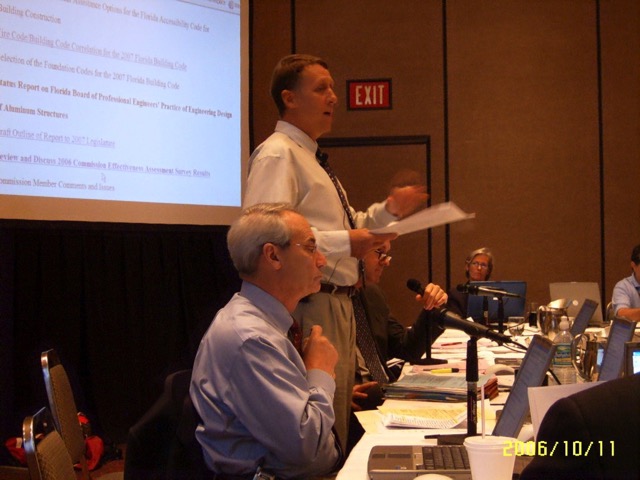
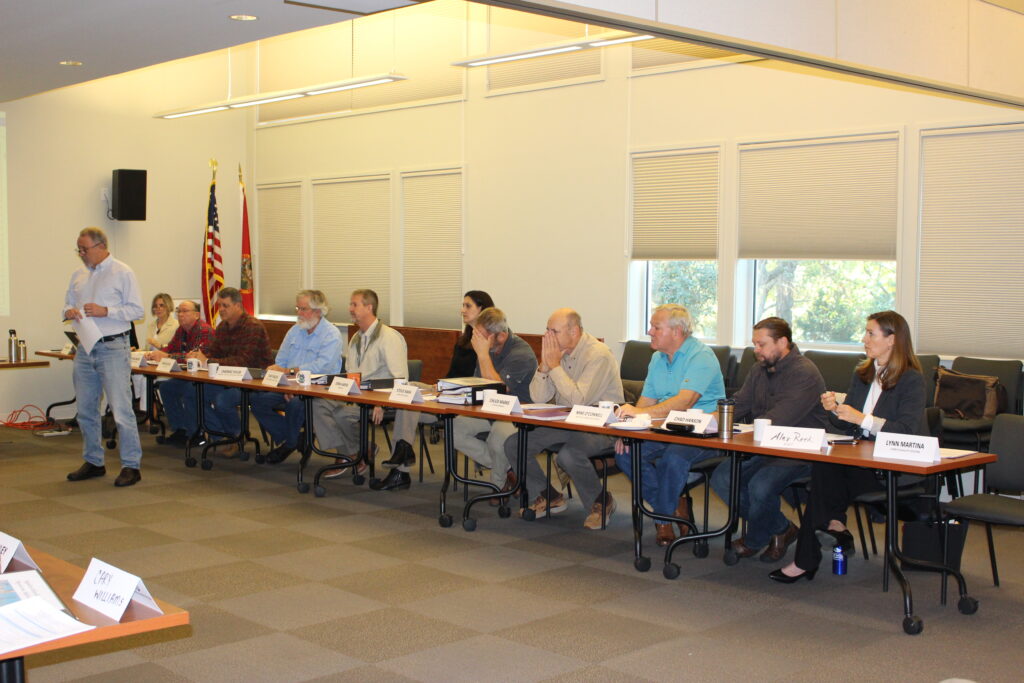
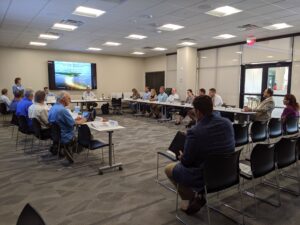
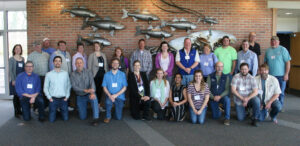
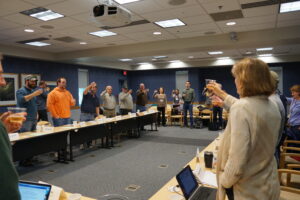
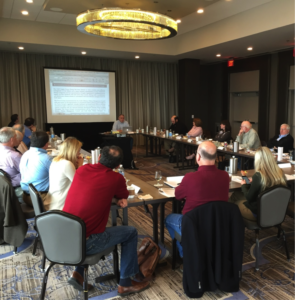
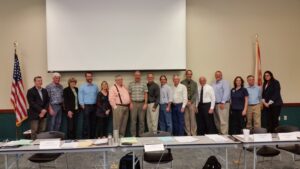
Comments
Current and Recent Projects — No Comments
HTML tags allowed in your comment: <a href="" title=""> <abbr title=""> <acronym title=""> <b> <blockquote cite=""> <cite> <code> <del datetime=""> <em> <i> <q cite=""> <s> <strike> <strong>